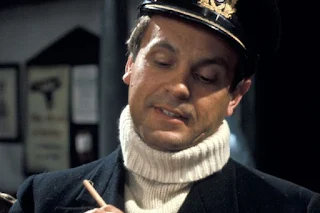 Allen James Coage was an American-Canadian judoka and professional wrestle died he was 63.[5] He won medals for the United States at several international judo competitions, including the heavyweight bronze medal at the 1976 Summer Olympics, and later appeared in professional wrestling promotions such as the World Wrestling Federation, New Japan Pro Wrestling and Stampede Wrestling under the ring names Bad News Brown, Buffalo Allen, and Bad News Allen.[5][7][8]
Allen James Coage was an American-Canadian judoka and professional wrestle died he was 63.[5] He won medals for the United States at several international judo competitions, including the heavyweight bronze medal at the 1976 Summer Olympics, and later appeared in professional wrestling promotions such as the World Wrestling Federation, New Japan Pro Wrestling and Stampede Wrestling under the ring names Bad News Brown, Buffalo Allen, and Bad News Allen.[5][7][8]
(October 22, 1943 – March 6, 2007)
Coage was born in Harlem, New York City and raised in a disadvantaged neighborhood in Queens, attending Thomas A. Edison High School.[4][2] After graduating in 1962, Coage began working in a bakery, eventually becoming a foreman.[4]
 Coage trained in judo under Jerome Mackey after seeing a poster for Mackey's dojo on the New York City Subway. He began his career in 1964 at the relatively late age of 22. After seven months as a white belt, he placed first in the Chicago Invitational tournament. Coage achieved a black belt in two and a half years and after five years was named a sandan.[4] Coage wrestled in a "classical" style,[8]with his favored throws being the Ōuchi gari and the Tai otoshi.[4]
Coage trained in judo under Jerome Mackey after seeing a poster for Mackey's dojo on the New York City Subway. He began his career in 1964 at the relatively late age of 22. After seven months as a white belt, he placed first in the Chicago Invitational tournament. Coage achieved a black belt in two and a half years and after five years was named a sandan.[4] Coage wrestled in a "classical" style,[8]with his favored throws being the Ōuchi gari and the Tai otoshi.[4]
Coage won the Amateur Athletic Union judo championship (heavyweight class) in 1966, 1968, 1969, 1970, and 1975, as well as winning the open division in 1970. He also competed in the Pan American Games, winning gold medals in the heavyweight class in 1967 and 1975.
In 1970, Coage relocated to Japan for two years, where he studied at Nihon University, majoring and minoring in judo.[4][9][10] In 1972, Coage suffered a severe knee injury during an Olympic Trials bout with Jimmy Wooley, rendering him unable to compete in the 1972 Summer Olympics.[8]
Upon recovering, Coage began training for the 1976 Summer Olympics. Coage was initially excluded from the United States judo team until a class action lawsuit was filed against the United States Olympic Committee by the United States Judo Association. Coage ultimately won a bronze medal.[8] His victory made him the first African American to win a solo Olympic Games medal in a sport other than boxing or track and field.
Coage retired from competitive judo following the 1976 Summer Olympics due to frustrations around internal politics.[6] He went on to hold a number of other jobs, including briefly working as a bodyguard for singer Aretha Franklin, before deciding to train as a professional wrestler.[11]
Coage was married three times. With his first wife, Audrey, he had his eldest child, Tonya. Then Coage was in a long-term relationship with Lorriane, in which he had his eldest son, Bryan, and April, and two step children—Martin and Ronda. He had another relationship with Lottie, in which he had two more children, Michael and Nancy. Coage was then married for a second time to Katharine, in which he had Lynnette. During his last marriage until his death, Coage was married to Helen in which he had one son, Allen Jr. (AJ) and raised two step children, Dawn and Frances. The youngest child of Coage is Keira, whom he had with another woman during his third marriage.[5][6]
Born in the United States, Coage later permanently relocated to Canada, ultimately securing Canadian citizenship.[5]
Coage died of a heart attack on the morning of March 6, 2007, at Rockyview General Hospital in Calgary, minutes after being rushed there due to chest pain.[3]
To see more of who died in 2012 click here





